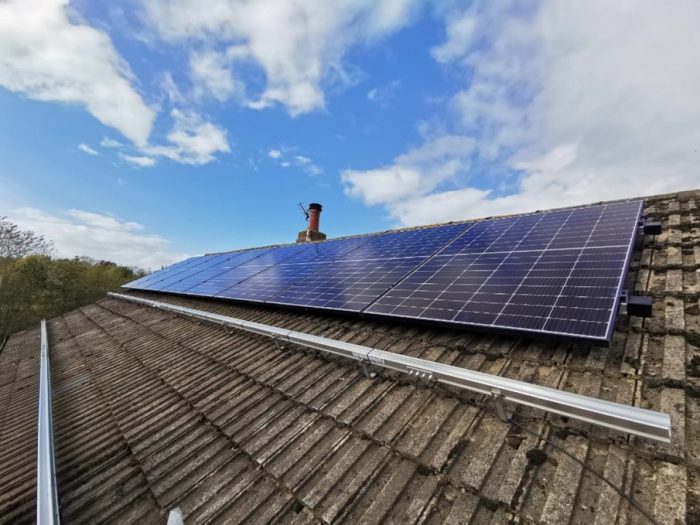Are you considering installing solar panels but are unsure if it’s a suitable choice for your home? With the rising cost of electricity, solar panels are becoming an increasingly popular option for homeowners looking to save money on their energy bills and reduce their carbon footprint. However, not all homes are suitable for solar panel installation for several reasons.
In this blog, the solar panel experts here at Go Green are exploring the factors determining whether your house is suitable for solar panels and what you can do to make it more of an appropriate location for these incredible, money-saving, eco-conscious devices.
Read on to discover what you can do to maximise the chances of your home benefitting from solar panels.
Why Ensuring Your House Is Suitable for Solar Panels Before Installation Is Key
Ensuring your house is suitable for residential solar panels will help avoid unexpected costs and potential complications. For example, if your home is not receiving enough sunlight or the panels are installed in a suboptimal location, you may not produce as much energy as you hoped. This could result in lower energy savings or a longer payback period for the investment.
In addition, if your roof is not strong enough to support the weight of the solar panels, you could experience damage to your roof, leading to leaks and other issues that could be costly to repair.
That is why our solar panel installers thoroughly assess your house before fitting, ensuring you are getting the most out of your solar panels and that they will provide you with long-term benefits.

How Do I Know if My House is Suitable for Solar Panels?
There are various factors to think about when considering whether your house is suitable for solar panels, such as:
- Location. The amount of sunlight your home receives is a key factor in determining whether solar panels are suitable. Ideally, your home should receive direct sunlight for most of the day. If your home is shaded by trees or other buildings, solar panels can still operate effectively, but direct sunlight is always best.
- Roof orientation. The orientation of your roof can also affect the suitability of solar panels. For example, south-facing roofs are generally considered the best for solar panels because they receive the most sunlight throughout the day. However, east and west-facing roofs can also be suitable.
- Roof condition. The condition of your roof is also important as solar panels typically last for 25-30 years, so if your roof needs to be replaced soon, it may be better to replace it before installing solar panels.
- Local regulations. Check with your local government to determine whether there are any regulations or zoning restrictions that may affect the installation of solar panels. Although there are solar panel grants for businesses, residential homes have different regulations, so it’s best to check with your local government to determine the guidelines.
If you are unsure whether your home is suitable for solar panels, our team at Go Green offer a FREE, no-obligation feasibility study to check your suitability for our systems. We also offer technical and practical advice, including a Technical Survey, which determines how much available space you have on your roof.

What Is the Best Roof Material and Size for Solar Panels?
The best roof material for solar panels depends on several factors, including durability, ease of installation, and cost. For example, metal standing seam roofs and composite shingle roofs are both popular options for solar panel installation. This is because metal roofs are durable and highly reliable, and they can be easily fitted, potentially saving money on installation. Composite shingle roofs are a good choice for solar panel installation because they can be easily secured by drilling holes through the shingles into the roof foundations to attach mounts that the solar panels will settle onto.
Regarding size, typically, solar panels require approximately 100 square feet of roof space for every 1kW of solar panels installed. So, for example, a standard 6kW solar panel system would need about 600 square feet of roof space. However, this number can vary depending on the angle and orientation of your roof, as well as the efficiency of your solar panels.
What If I Don’t Use the Energy?
Another reason you may be debating whether solar panels are right for your home because you may not think you’ll use all the energy they produce. However, it’s important to note that if you do not use the energy produced by your solar panels, it will be exported back to the National Grid or your battery storage for later on.
This means you don’t have to worry about wasting energy or not getting your money’s worth out of your solar panels. Every kW of energy your residential solar panel produces will be used or stored, so nothing is wasted.
So, if we have provided the peace of mind you needed to understand that your home is suitable for solar panels, we’d love to hear from you. As qualified, experienced, and friendly solar panel installers in the North West, we can install residential solar panels in areas across Lancashire, including Blackburn, Carnforth, Heysham, Preston, Silverdale, and more. Get in touch to find out how we can help you.


